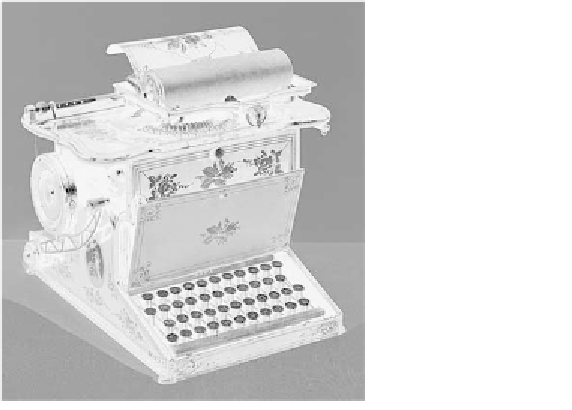Information Technology Reference
In-Depth Information
is a paradigmatic product of the system in which it was developed.
Like the typewriter and, by extension, Turing's device, the oper-
ations of capitalism are fundamentally predicated on abstraction,
standardization and mechanization, to ensure that it can operate
as a universal machine, capable of treating disparate phenomena
as equal and interchangeable. This is found in its emphasis on the
exchange value of commodities, rather than their use value, the
introduction of credit, paper money, and 'fiduciary' money, the divi-
sion of labour into discrete and repeatable parts, and the stan-
dardization of components. This abstraction enables the flow of
goods, money, and people crucial to capitalism's continuous quest
for expansion and profit. It also allows for the integration of
machinic assemblages, including physical machinery, such as the
steam engines and spinning jennys of the early nineteenth century,
and factories, in which workers were bound to machines and their
work is regulated like machine-like processes. One result of this is
that under capitalism signification is no longer anchored to stable,
embodied meanings. Goods are no longer valued for their material
1 A Remington typewriter,
after 1874.

